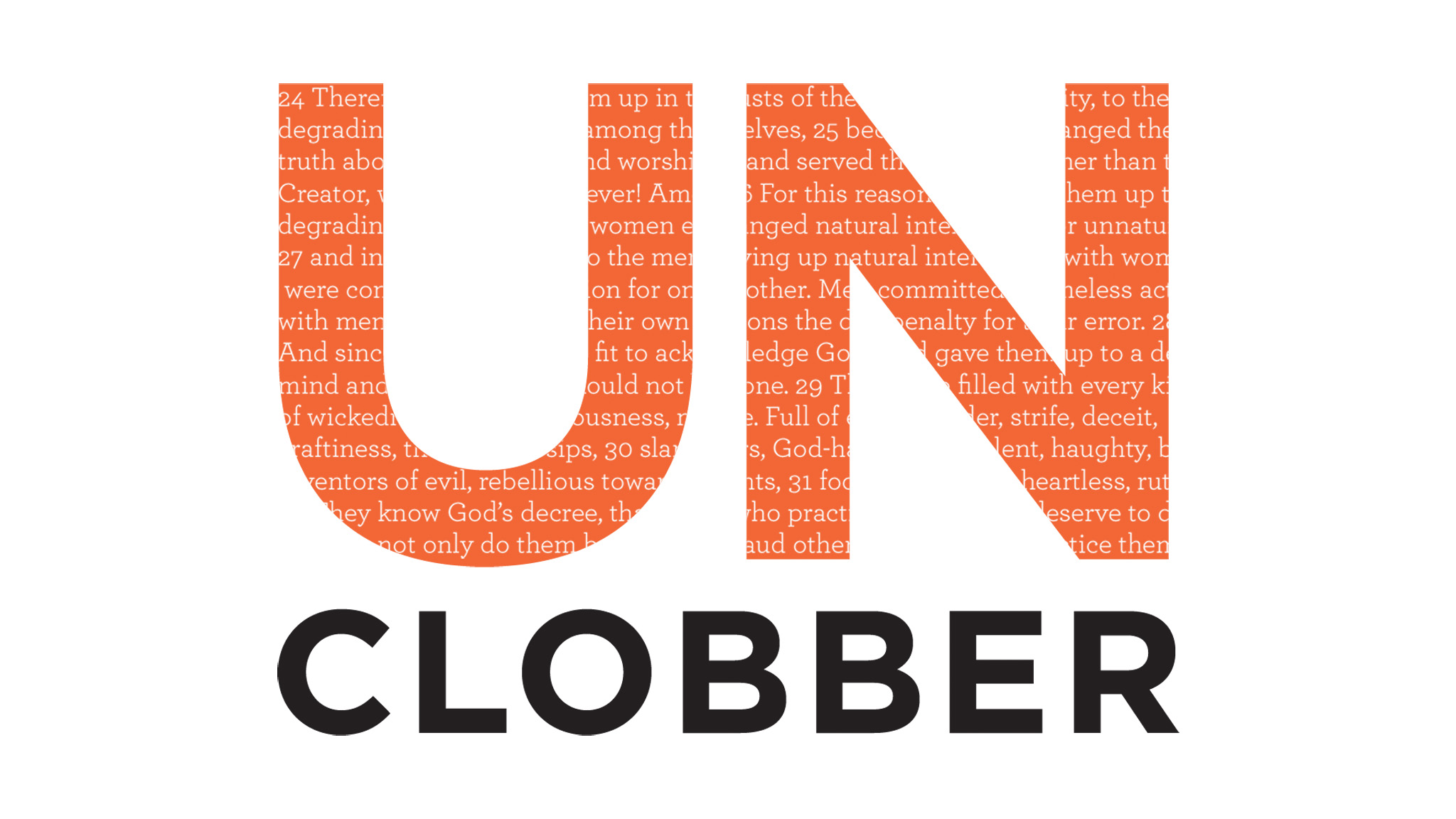There are precisely six occurrences of Biblical text that reference same-sex, sexual encounters out of 31,102 verses of the old and new testaments. It takes up roughly 0.02% of the text that is divinely inspired.
A whopping six occurrences. Not 2%, but two-hundredths of one percent.
These sets of passages — often referred to as “the clobber passages” because people tend to get “clobbered” with them in any discussion of same-sex relations — are often taken entirely without context to the day in which they were written.
These issues are so important that they are barely mentioned in the Bible.
They’re important enough that they’re mentioned as one of the ten things God wanted his chosen people to know as part of the “ten commandments”.
I’m kidding. They’re not.
And no, that’s not the “adultery” one because that’s talking about tainting a marriage (it’s from the Latin adulterare, meaning “to corrupt”).
So, what do we need to know about the “clobber passages”?
In his book, Unclobber: Rethinking Our Misuse of the Bible on Homosexuality, author and pastor, Colby Martin, provides insight into each of these six passages and aims to give the reader further background and insight into possible explanations for each of these.
This book was recommended to me by several United Methodist pastors and I found it very helpful as we deal with this “Big Issue” within the United Methodist Church today. I would highly recommend it to anyone who wants to understand more about homosexuality being mentioned in the Bible and how to respond when these are used to defend the exclusion of others in our society in our church.
Here are the six ‘clobber passages’ covered:
- Genesis 19 (the story of Sodom and Gomorrah)
- Leviticus 18:22 (lying with a male as one does a female)
- Leviticus 20:13 (if a man lies with a male as he does a female, they’ve committed a despicable act)
- Romans 1:26–27 (about men abandoning their natural desire for a female)
- 1 Corinthians 6:9–11 (about who won’t inherit the kingdom of God)
- 1 Timothy 1:10 (about laws being made not for righteous people, but for a list of others including homosexuals)
What Colby Martin does well in this book is give context to these passages in their own, dedicated chapters. As Wesleyan Methodists, that’s what we do — we think about God’s true intent and message with scripture and the context in which the scriptures were written. We don’t only use scripture because that’s not very Methodist-like, but we use it as our authority along with reason, tradition, and experience to develop mature faiths.
In one of my favorite correlations, he points out that defining the broad concepts of “homosexuality” as ‘bad’ and defining “heterosexuality” as ‘good’ is probably not appropriate.
Is all “heterosexuality” good? Probably not if you’re a man hiring a prostitute. That’s what people might consider ‘bad heterosexuality’.
So maybe “homosexuality” isn’t what we should focus on as a broad term. Maybe human sexuality and its forms can have variations of ‘good’ and ‘bad’ within them and not exist solely as some broad-brushed term.
The Takeaway
Colby Martin’s book isn’t a heavy read and enlightens on these ‘clobber passages’, providing historical context to help us when we’re confronted with them by people who have gone all in on the Biblical poker chips on this topic. If you’re willing to open your mind to the idea of the interpretation of scripture (and the acceptability of that), then Martin’s book might be something that you want to add to your reading list.
You can purchase the book on Amazon (that’s the author’s link — I don’t make anything off of that) or to see some of Colby Martin’s videos that accompany the book, visit http://www.unclobber.com.






